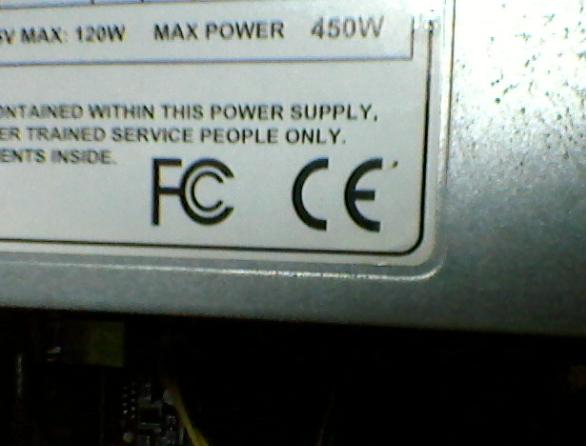wasn't blowing you off...tough couple days here.
I'm a voting member of a sub-committee, might end up being the chairman of one of the Working Groups due to my "unique influence skills". We write the standards that industry uses to certify compliance. You have to apply for membership in Committee, SubComittee, Working Group, etc. The lower the level you're at, the more selective they get about membership.
for anyone reading this who's not familiar with what we're talking about, it's the testing that lets a business put the little "FCC", "CE", BSMI, VCCI, KN, etc marks on electronic devices.
Those devices have to be certified to be safe and non-interfering before they can be sold to the public, and every country has their own definition of "safe" and "non-interfering". For the US (ANSI) we're writing The Rules of Testing. Then the business develops their own test plan, does the testing, then submits the results to the FedGov via a Declaration of Conformity.
it's why your dryer doesn't shut off when you walk by with your cellphone. If you remember when TVs were analog, you remember when plugging the vacuum in made the TV fuzz out. That's because the vacuum motor put noise on the AC power line and interfered with the rasterization signal on the TV (usually Vsynch). Then TVs became digital and it was no longer an issue. This is the same thing, but it also considers radiated noise, magnetically-coupled noise, voltage dips, noise susceptibility, and other aspects of what defines "safe" and "non-interfering".
I didn't think I was being blown off, people live.
OK, so this is my understanding as long as I've studied this topic, and that started when the high voltage powerlines caused health issues nearr homes. This was a part of my decision for career direction in relation to electrical, as linemen had an average life expectancy of 59 years(not due to schock, but cancer).
ANSI writes the testing standards, yes, but only within the range the
FCC "allows" indirectly, and does not have its own independent test funds outside the allocation its granted in the industry by government,
In short, might makes right.
The FDA for example, "deems" vaccines safe, therefore they are but ultimately it's Pfizer that deems them safe, the FDA is nothing but a puppet to the industry & they rub each other off. ANSI does not exhaustively write testing standards in relation to long-term human studies, but focuses its standards in relation to interference between devices, for lack of a better explanation. The FCC, although having minimal to no real
legitimate human testing on its own, rubber stamps the industry & ultimately the cash flow to testing based on how good the blowjobs are; Samsung, AT&T etc. give the blow jobs to the entire industry.
But we know damn well smoking causes cancer, but it's legal "as long as".
This is no different than every industry throughout time, whether it's Georgia-Pacific in relation to mesothelioma or the NEC in relation to Westinghouse in the 30's.
The 5g network rollout is bigger than the problem, in other words. ANSI DOES NOT DICTATE the safety of the industry, they're the rubber stamp buffer between public outcry and liability.
This isn't said to negatively reflect on you, it has nothing to do with you.
But there has absolutely been inadequate health testing in relation to phased mm array technology, by design. In fact I'd say there actually hasn't been, but the benefits *outweigh the cost*; the MIC knows
exactly what this does, as much as it knows underwater bomb tests are going to take out 30,000 marlin 200 miles west of Miami.
Militaries across the planet know that 5g is essential to AI and vice versa, and whoever controls that sphere controls the world, so ultimately there is no red tape.









